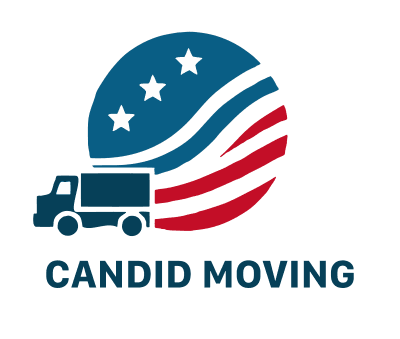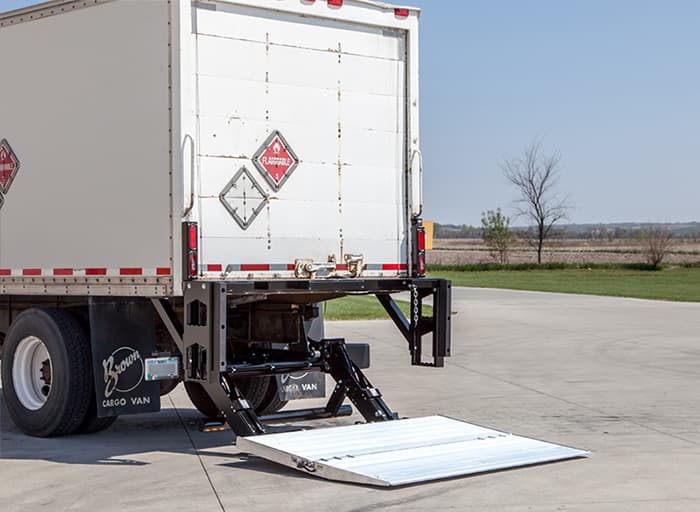So, how does it all work? What are your options as a consumer that wants to move in America? The answer is as simple as it is complicated, and I will break it down for you here.
You essentially have a few options:
1) Do It Yourself
You rent a truck, disassemble, wrap, pack, and load everything, drive, then unload and set up the new place, and return the truck. This is more feasible for a short, smaller move if you have help and/or good knees. Cross-country jobs that are larger are very difficult to do this way. Years ago, prices for truck rentals were definitely reasonable enough to consider this option even for a bigger cross-country job. Nowadays, with demand and inflation, truck rental is just way more expensive. Don’t forget, when you do it this way, you have to factor in gas, tax, tolls, moving blankets, tape, bubble wrap, boxes, hotels, and food, plus the general annoyance of doing it yourself. I am probably even forgetting something in that list. Moving yourself is right up there with going to the dentist as things that humans enjoy doing.
Pros:
- Sometimes cheaper
- You have control over every aspect of the experience
- Delivery time is completely predictable
Cons:
- On many routes, it is just not substantially cheaper than finding an independent carrier/broker. It used to be, but prices have changed.
- You have to do everything, buy everything, etc.
2) Use a Container Service or Load/Unload Yourself Trucking Option
There are many to choose from, such as PODS, ABF, etc. You do everything except rent the truck and drive it. This can be a great option for some people, especially if they want to slowly clean out their house and leave the pod in the front of it and load over time. It is a great do-it-yourself option that fits many scenarios well. You also need to get all the furniture protection in this scenario, and you will need to make sure that the container service even services your area. I cannot tell you how many times over my years in this industry that a client calls me and says something like, “I rented a POD, and they didn’t tell me until after pickup that they can’t deliver it to my new place, so they put it at the warehouse and I need to go get my stuff myself, and I actually need a moving quote anyway!”
Pros:
- Sometimes cheaper depending on distance
- You have some control over delivery (but not as much as you may think in certain situations)
Cons:
- Service areas vary greatly, sometimes a challenge on one end.
- Costs are much higher than they used to be on many routes, and storage can be expensive monthly
3) Use a Major Van Line
If you call one of the major van lines (Allied, Atlas, Mayflower, North American, United, Wheaton-Bekins, etc.), they will send out their local agent to do your survey. Van lines are kind of like a moving group, and independent carriers join the van line because they then get that national name recognition, and the van line presents them with most of their job opportunities. This is the way that many Americans move. People sometimes question the fact that the van line sends out a local agent and nobody comes out from a central location, but this is just how moving works. Just because “Joe from Joe’s Movers in Detroit” comes out as the Allied dedicated agent, that doesn’t mean that you aren’t being moved by Allied. Think of it as somewhat of a franchise situation. If you go to 5 different McDonald’s restaurants (I hope you don’t, but let’s use this as the example), each will have the general McD menu, but each will run at their own pace and style. So in general, you get a move based on the van line rules and procedures, but carried out by their dedicated regional agents. The crews that actually move you are called carriers. Carriers normally either join a van line or remain independent, and there is a very good argument for each choice. It really just depends on the owner and what situation they will thrive in.
Pros:
- You are hiring a major well-known brand, so the quality of the job should almost always be consistent
- Vetted carriers under the van line umbrella
Cons:
- Costs. This is hands down the most expensive way to move, and that is not debatable, but you get what you pay for, as they say.
- Timeline. You usually have to book with a van line very far out; they are normally unable to service last-minute jobs. Delivery times can vary, and you usually have a delivery window.
4) Go Direct to Carrier/Book with Their Broker
Many carriers do not join a van line. They don’t because they don’t want to pay a piece of their profit to the van line just for being given jobs or having name recognition. Think of it as a company wanting to maintain their own identity and not be chained to a larger organization. There are a LOT of carriers that are independent, way more than the ones that sign on to a van line contract. These carriers either do their own advertising or get just about all their business from their booking broker. The word “broker” has a misunderstood connotation in the moving industry, and people tend to run with an idea that they hear people say because of herd mentality. Brokers book most of the jobs in the moving industry. Much like there are good and bad doctors, lawyers, and teachers, there are also good and bad brokers. Truly, the moving industry would not run properly without them. Sadly, there are many bad ones. If you know what you are looking for and find one of the good ones, you will have a very similar experience as you would through a van line, normally at a much less expensive price.
Pros:
- Cost. Normally this is less expensive.
- Timeline. The good brokers in this country have a vast network of dedicated agents in every area, so last-minute jobs are possible. I know this firsthand because I have literally picked people up the same or next day as they booked the job.
Cons:
- If you book with a disreputable broker, they may not have a good carrier network. This business has been cleaned up much more now than it used to be, but bad brokers still exist.
- Timeline. Much like booking with a van line, you normally have a delivery window and sometimes need to be patient.
What Does This All Mean?
In a nutshell, every single moving job is different. There is not a “one size fits all” answer for every job. Truly, many jobs have multiple ways that would work for them, and it boils down to what fits best for the client and how they want to tackle the job logistically. The bottom line is there are many options in America to facilitate your relocation, and because this industry is not well understood and highly misrepresented, clients usually don’t fully grasp their options, how does it all work? What are your options as a consumer that wants to move in America? The answer is as simple as it is complicated, and I will break it down for you here.
You essentially have a few options:
1) Do It Yourself
You rent a truck, disassemble, wrap, pack, and load everything, drive, then unload and set up the new place, and return the truck. This is more feasible for a short, smaller move if you have help and/or good knees. Cross-country jobs that are larger are very difficult to do this way. Years ago, prices for truck rentals were definitely reasonable enough to consider this option even for a bigger cross-country job. Nowadays, with demand and inflation, truck rental is just way more expensive. Don’t forget, when you do it this way, you have to factor in gas, tax, tolls, moving blankets, tape, bubble wrap, boxes, hotels, and food, plus the general annoyance of doing it yourself. I am probably even forgetting something in that list. Moving yourself is right up there with going to the dentist as things that humans enjoy doing.
Pros:
- Sometimes cheaper
- You have control over every aspect of the experience
- Delivery time is completely predictable
Cons:
- On many routes, it is just not substantially cheaper than finding an independent carrier/broker. It used to be, but prices have changed.
- You have to do everything, buy everything, etc.
2) Use a Container Service or Load/Unload Yourself Trucking Option
There are many to choose from, such as PODS, ABF, etc. You do everything except rent the truck and drive it. This can be a great option for some people, especially if they want to slowly clean out their house and leave the pod in the front of it and load over time. It is a great do-it-yourself option that fits many scenarios well. You also need to get all the furniture protection in this scenario, and you will need to make sure that the container service even services your area. I cannot tell you how many times over my years in this industry that a client calls me and says something like, “I rented a POD, and they didn’t tell me until after pickup that they can’t deliver it to my new place, so they put it at the warehouse and I need to go get my stuff myself, and I actually need a moving quote anyway!”
Pros:
- Sometimes cheaper depending on distance
- You have some control over delivery (but not as much as you may think in certain situations)
Cons:
- Service areas vary greatly, sometimes a challenge on one end.
- Costs are much higher than they used to be on many routes, and storage can be expensive monthly
3) Use a Major Van Line
If you call one of the major van lines (Allied, Atlas, Mayflower, North American, United, Wheaton-Bekins, etc.), they will send out their local agent to do your survey. Van lines are kind of like a moving group, and independent carriers join the van line because they then get that national name recognition, and the van line presents them with most of their job opportunities. This is the way that many Americans move. People sometimes question the fact that the van line sends out a local agent and nobody comes out from a central location, but this is just how moving works. Just because “Joe from Joe’s Movers in Detroit” comes out as the Allied dedicated agent, that doesn’t mean that you aren’t being moved by Allied. Think of it as somewhat of a franchise situation. If you go to 5 different McDonald’s restaurants (I hope you don’t, but let’s use this as the example), each will have the general McD menu, but each will run at their own pace and style. So in general, you get a move based on the van line rules and procedures, but carried out by their dedicated regional agents. The crews that actually move you are called carriers. Carriers normally either join a van line or remain independent, and there is a very good argument for each choice. It really just depends on the owner and what situation they will thrive in.
Pros:
- You are hiring a major well-known brand, so the quality of the job should almost always be consistent
- Vetted carriers under the van line umbrella
Cons:
- Costs. This is hands down the most expensive way to move, and that is not debatable, but you get what you pay for, as they say.
- Timeline. You usually have to book with a van line very far out; they are normally unable to service last-minute jobs. Delivery times can vary, and you usually have a delivery window.
4) Go Direct to Carrier/Book with Their Broker
Many carriers do not join a van line. They don’t because they don’t want to pay a piece of their profit to the van line just for being given jobs or having name recognition. Think of it as a company wanting to maintain their own identity and not be chained to a larger organization. There are a LOT of carriers that are independent, way more than the ones that sign on to a van line contract. These carriers either do their own advertising or get just about all their business from their booking broker. The word “broker” has a misunderstood connotation in the moving industry, and people tend to run with an idea that they hear people say because of herd mentality. Brokers book most of the jobs in the moving industry. Much like there are good and bad doctors, lawyers, and teachers, there are also good and bad brokers. Truly, the moving industry would not run properly without them. Sadly, there are many bad ones. If you know what you are looking for and find one of the good ones, you will have a very similar experience as you would through a van line, normally at a much less expensive price.
Pros:
- Cost. Normally this is less expensive.
- Timeline. The good brokers in this country have a vast network of dedicated agents in every area, so last-minute jobs are possible. I know this firsthand because I have literally picked people up the same or next day as they booked the job.
Cons:
- If you book with a disreputable broker, they may not have a good carrier network. This business has been cleaned up much more now than it used to be, but bad brokers still exist.
- Timeline. Much like booking with a van line, you normally have a delivery window and sometimes need to be patient.
What Does This All Mean?
In a nutshell, every single moving job is different. There is not a “one size fits all” answer for every job. Truly, many jobs have multiple ways that would work for them, and it boils down to what fits best for the client and how they want to tackle the job logistically. The bottom line is there are many options in America to facilitate your relocation, and because this industry is not well understood and highly misrepresented, clients usually don’t fully grasp their options.


